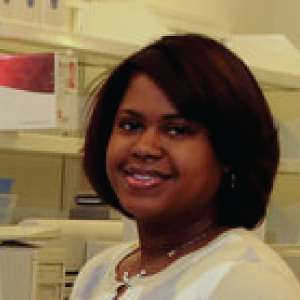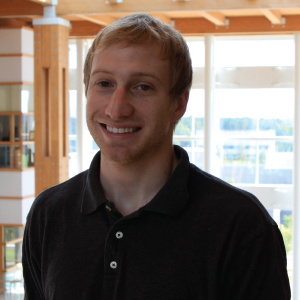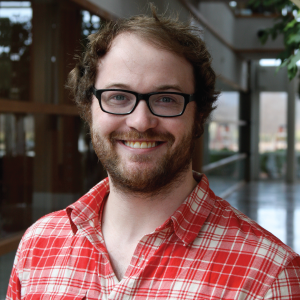Three graduate students received their PhDs this spring after successfully defending their doctoral dissertations at HudsonAlpha.

Kim Hobbs
Kim Hobbs, a graduate assistant trainee in the Devin Absher Lab, defended her dissertation, “Functional Association of the Cyclin-Dependent Kinase Inhibitor Locus with Cardiovascular Disease,” in April 2018. Hobbs joined the Absher Lab in 2010 where she studied genetic changes related to cardiovascular disease. She received her PhD from the University of Alabama in Huntsville.
Learn more about Hobbs and her time at HudsonAlpha in this GeneChat interview from DNA Day.

Ryne Ramaker
Ryne Ramaker, an MD/PhD student at the University of Alabama at Birmingham (conducting research at HudsonAlpha), defended his PhD dissertation entitled “Transcriptional changes underpinning poor prognosis and chemoresistance in pancreatic cancer,” in May 2018.
Ramaker received his PhD in Genetics/Genomics and Bioinformatics.
Ramaker has been conducting research in the Sara Cooper Lab and the Rick Myers Lab at HudsonAlpha. His work has focused in cancer genomics, transcription factor-mediated gene regulation, and metabolomics. Ramaker has co-authored ten papers already as a student, and has been first author on three publications in Genome Research and Genome Medicine.
As an MD/PhD student, Ramaker has an additional 18 months of clinical studies before completing the program, and then will have the option of a postdoctoral fellowship or medical residency.

Drew Hardigan
Andrew Hardigan, an MD/PhD student at the University of Alabama at Birmingham, also defended his doctoral dissertation at HudsonAlpha in May 2018.
Hardigan has been conducting his research under the leadership of Rick Myers, PhD, president and science director of HudsonAlpha. His dissertation was entitled “Applications of next-generation sequencing and functional genomics in translational medicine.”
In his studies at HudsonAlpha, Hardigan already has co-authored seven papers, including a recent study that could lead to a noninvasive screen for colon polyps. He also presented at the 2017 Center for Genomic Medicine Symposium.
As an MD/PhD student, Hardigan will now complete clinical studies required for the MD degree, followed by medical residency and/or postdoctoral research.


